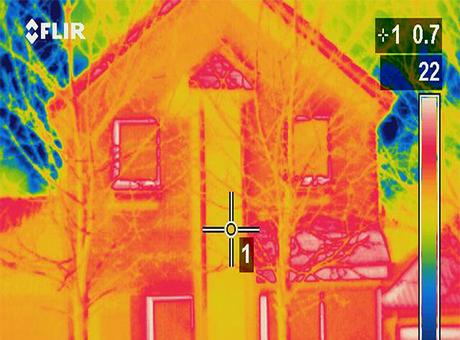Smart Systems and Heat: Consumer Response and Behaviour (CRaB)
Understanding of householders' use of heat and energy in an aim to identify current and future consumer requirements and understand consumers’ responses to smart energy system proposals.

30 June 2012
Heat accounts for over 40% of the UK’s demand for energy, with domestic heating accounting for almost 20% of the UK’s CO2 emissions.
CraB is a consortium based £3.7 million study is seeking to provide an understanding of householders' use of heat and energy in an aim to identify current and future consumer requirements and understand consumers’ responses to smart energy system proposals.
The work undertaken employs a multi-disciplinary research collaboration, combining qualitative and quantitative social research, physical monitoring, modelling and concept development supported by a thorough review of secondary literature sources.
The project is an integral part of the Energy Technology Institute's (ETI) £100 million Smart Systems and Heat (SSH) technology programme.
The SSH technology programmes aims to create future-proof and economic local heating solutions for the UK. It will connect together an understanding of consumer needs and behaviour with the development and integration of new technologies and with new business models.
The associated insight will deliver enhanced knowledge across industry and the public sector, resulting in industry and investor confidence to implement SSH influenced solutions from 2020 and thereby enable a UK energy system transition, focussed around effective delivery of heat, within an appropriate policy and support environment to deliver a cost-effective UK energy system transition.
- People
PI: Tadj Oreszczyn
RR: Gary Raw
RR/Project Manager: Rokia Raslan
Rs: Andy Stone and Clare Littleford
- Output
UCL has provided the technical lead on this project and have in particular directed and implemented the development of a new systematic modelling framework based around a multi-zonal physics-based simulation model to allow ‘what if?’ questions around the interaction of people, buildings and heating systems to be explored.
The reports and outputs of this project are still in preparation, however the funder (ETI) plans to develop domestic value propositions from this work which will be demonstrated on a larger scale at a later part of the Smart Systems and Heat programme.
- Impact
The envisioned impact of this project will include the understanding of consumer needs and behaviour and connecting this knowledge with the development and integration of technologies and new business models. This will lead to the delivery of enhanced knowledge amongst both industry and the public sector and result in industry and investor confidence to the implementation of SSH technologies from 2020 and ultimately enable the UK heat transition plan.
Local authorities have been identified as a key partner in the SSH programme and will both to help design the end smart energy system through their insights into both residents requirements as well as the practical implication of such systems.
- Links
For further information please contact: Rokia Raslan
 Close
Close

